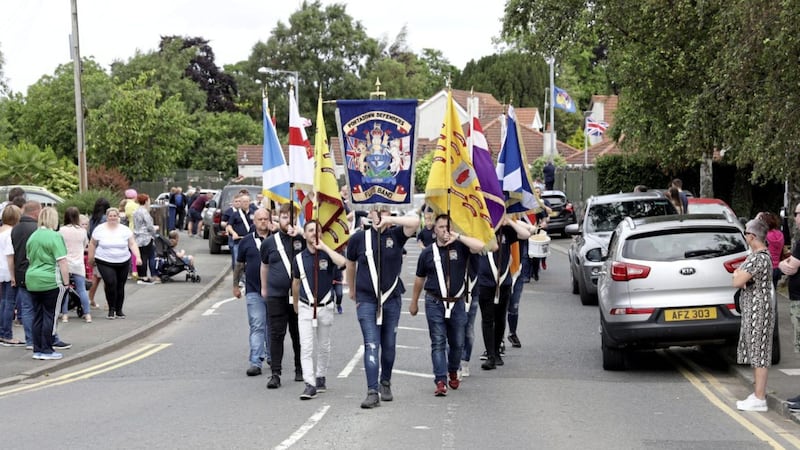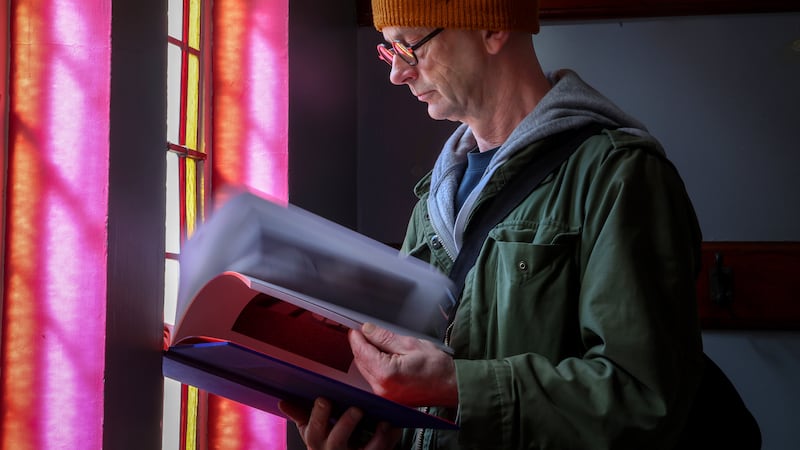THE annual Twelfth of July celebrations in Covid time were, like St Patrick’s Day, rather a different event from previous years. No huge demonstrations, no streets lined with crowds. But some things were sadly the same: the ritual burning of Irish flags and sectarian slogans including Kill All Taigs and vile references to the late Bobby Storey adorned some of the smaller number of bonfires.
The former DUP MP Emma Little Pengelly complained mildly on Twitter about “stupid graffiti”. "Come on folks,” she wrote. "I don’t believe anyone in the unionist or loyalist community that believes in KAT so let’s cut out the abuse.”
This is the woman who said people didn’t mind UVF flags being erected in a mixed housing estate, so she might be a slow learner who is finally getting it.
Her party leader, Arlene Foster, also condemned sectarian displays and posed this question: "They really need to look at themselves and ask themselves what sort of Northern Ireland do they want to live in – do they want to live in a Northern Ireland where everyone is entitled to proudly celebrate their culture and identity, or do they want to live in a split Northern Ireland?”
As a child, I lived on the main parade route along the Lisburn Road in Belfast and it took quite a few years before I became aware that it wasn’t just like the fourth of July in the USA or Bastille Day in France.
The problem with the Twelfth is that it’s a celebration of one side in this divided community over the other. Remember 1690? Who can forget? All the rebranding as Orangefest and a great family day out won’t fundamentally alter that truth.
Then add to that inevitable triumphalism, with flags in places where residents don’t want them and naked displays of sectarian hate, and it’s hard not to do what a significant number of people do every Twelfth... get the hell away until it’s over.
I don’t want to live in a split Northern Ireland either, Arlene. I don’t want to prevent Orangemen commemorating their 300-year-old battles if they do it with the consideration and good manners that are more often shown in rural areas than in the city. Nobody in Rossnowlagh is bothered by the Donegal Orange parade and in Derry they’ve reached accommodation over Apprentice Boys parades in recent years.
I don’t want a split Northern Ireland so I don’t want to see flags of any kind on the public highways. If you want, put one up on your own house and watch the property price slide. It’s your choice.
I want everyone to proudly celebrate their culture and identity – that means also respecting those whose identity is Irish.
I’m writing this on my first post-lockdown break in Galway, which was supposed to be celebrating its European City of Culture accolade this summer. The reality is the sad effects of what the economist David McWilliams has described as the “Pandession” – a recession caused by a pandemic.
This is the man who first coined “ghost estates” back in the early noughties to describe the housing developments left empty following the economic boom and bust in the property market.
Now he’s warning about the impact on Ireland of the loss of what he calls the “craic economy” – which covers bars, restaurants, hotels, the performing arts, festivals and, more generally, the friendliness of the people which is part of Ireland’s brand.
In Galway you can see its loss in the dozens of shuttered traditional bars where “food” was a packet of bacon fries. The gastro pubs are open, though queues and service from masked waiters has changed the mood somewhat.
McWilliams wants the Irish government to save the craic economy by borrowing at low to zero interest and directly transferring money into the accounts of small businesses in the sector. This will enable them to keep their staff and preserve that economy. To do otherwise will see long-term unemployment, closures and massive social cost to our cities, towns and villages. This makes sense.
* * *
THE introduction of mask wearing has come late and the message is so confused by government dithering over whether it should be compulsory or preferred. It’s therefore not surprising many people have been reluctant to don them in shops and on public transport.
A YouGov poll found that 36 per cent of people in the UK wear a mask in public places, compared to 86 per cent in Spain, 83 per cent in Italy and 78 per cent in France.
Remember what one survivor of Covid said: “If you think wearing a mask is uncomfortable, you’re not going to like a ventilator.”








